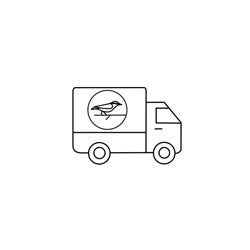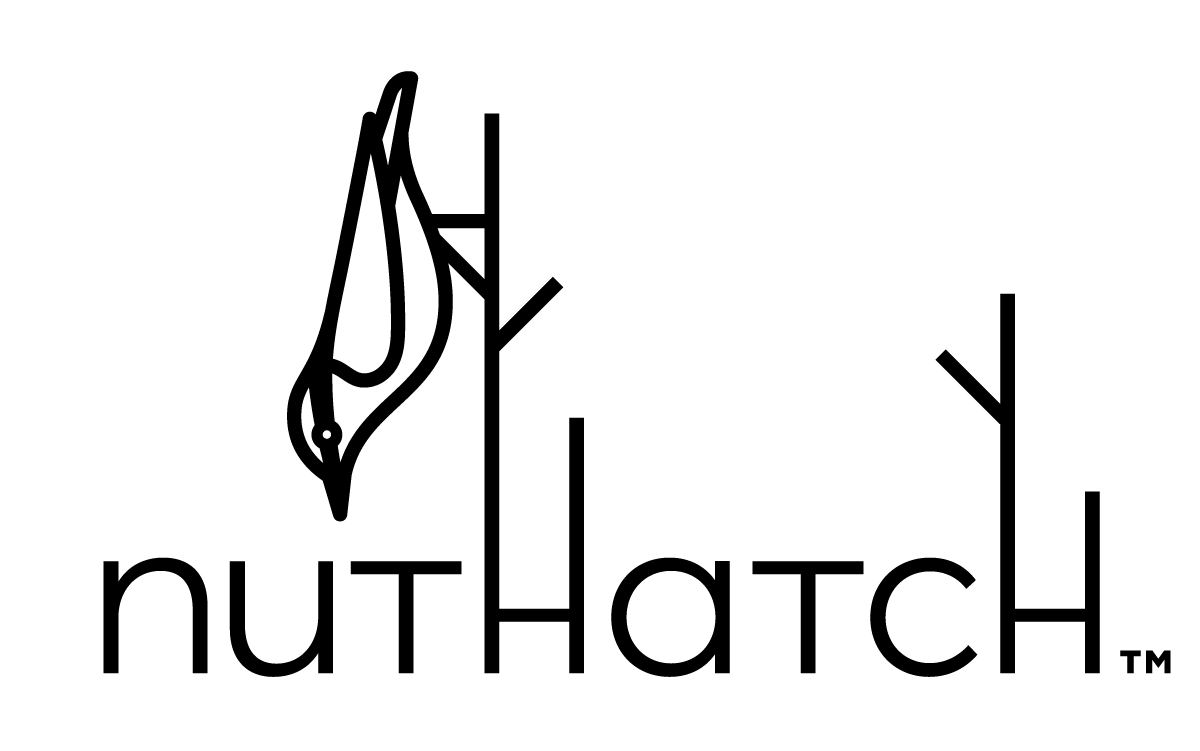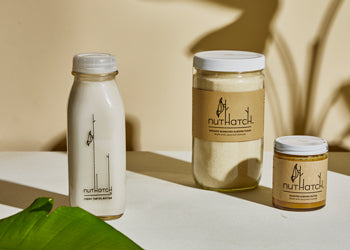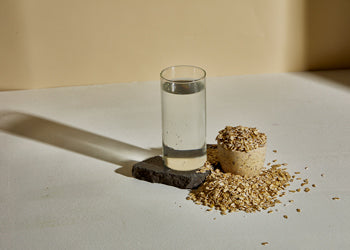What is upcycling? Our zero-waste process.
So what is upcycling? And what does it really mean to be a zero food waste business?
Have you ever tried making nut milk yourself at home? Some of you know the drill. Soak almonds in water overnight, strain and rinse, add them to a blender with fresh water, blend, and strain with cheesecloth. It’s not easy but it’s a labor of love!
But what about the leftover pulp? You know - that stuff left in the cheesecloth that kind of feels like a paste? Compost it? Toss it? Find a cool recipe on Instagram for raw balls or gluten-free crackers? You’re proud of your efforts to make fresh milk, but now you’ve got extra waste to deal with! Sigh. Being green is WORK! Maybe you just put the pulp in the fridge with the intention of getting to it later...and then forget all about it ‘til it was eh - growing? Now you’ve got a science project.
My sister Susan and I went through all of the above. The processing time and labor were A LOT. Susan is a handsy genius who adores baking so we tried all sorts of recipes in the kitchen. She started whipping up these amazing treats, but the process was very labor intensive. First make the milk, then dehydrate the meal for 12-18 hours, then sift it several times to get the flour, and finally get to baking. And if you’ve ever made vegan and gluten-free baked goods, you know how tricky it can be.
And yes, truth be told, we had moments where we just gave up and tossed the pulp because we couldn’t process it fast enough. Our business was growing, and we were making more and more milk, which meant we were creating more and more pulp. It was more than we could transform into baked goods while making milk, doing deliveries, promoting our business, posting on Instagram and also working full time day jobs. We were stretched too thin.
So, we dropped the baked goods, stuck with our commitment to sustainability and focused on processing the nut flour. Pounds and pounds of it. Just think of how much pulp we were generating from making hundreds of milk bottles per week! The volume was epic. But so was our vision!
We bought commercial dehydrators which run non-stop, dehydrating the nut pulp so it can be milled and hand-sifted into flour. We sell our nut flour to some wonderful gluten-free & vegan bakers in the city like Keay.k and Sixteen Mill Bakeshop!
What makes Nuthatch flour different from other nut flours?
The number one difference is our magic ingredient, TLC. You won’t find that from any other brand. But in all seriousness, the almond flour you buy at the grocery store is made by grinding almonds, usually with their skin on. Our almond flour is made from the pulp of the almond after making almond milk, which makes all the difference. And because we use organic blanched almonds with the bitter skins removed, our almond flour is a beautiful white color and is naturally sweetener than regular almond flour. It is light and fluffy and performs fabulously in baked goods - just ask our baker friends!

So where does the butter come from?
We discovered almond butter in a happy accident while processing our almond flour.
Let’s start with the basics. Traditionally, very finely ground almonds will turn into almond butter because the grinding process releases oils which change the texture. (Remember, grinding almonds less finely yields conventional almond flour.)
When making fresh almond milk in a blender, grinding almonds with water releases the natural oils into the milk resulting in that creamy white color. But not all of the oils are released into the milk - even with a commercial cold press. When you sift leftover dehydrated almond meal to make flour, you are left with these sticky bits - which is the residual oil mixed in a bit of almond flour. Roasting those sticky bits releases the leftover oils and melts them, turning them into a very smooth and creamy butter. And since we started with blanched (skinless) almonds, our butter is much smoother and creamier than store-bought stuff. It is also a bit sweeter, since almond skins tend to add bitterness.
We know firsthand how a commitment to sustainability is real work, especially as you grow and scale a business. But don’t let the perfect be the enemy of the good! Living sustainably is a journey for all of us, and we hope that our candor about our trials and tribulations will inspire you to keep taking small steps towards your own daily goals. Composting food scraps, making stock, reusing packaging, shopping consciously... whatever you can do, keep it up! A little something is better than nothing, and we believe every effort counts. We are right there with you! In the words of Zero Waste Chef Annie Marie Bonneau, “We don’t need a handful of people doing zero waste perfectly. We need millions of people doing it imperfectly.”

save 10% by subscribing to weekly deliveries
At Nuthatch, we make drinking plant-based easier than ever with our weekly delivery subscription program!
Simply add items to your cart, and before checkout, select “Subscribe & Save 10%." Then, choose your delivery frequency (every 1 or 2 weeks).



